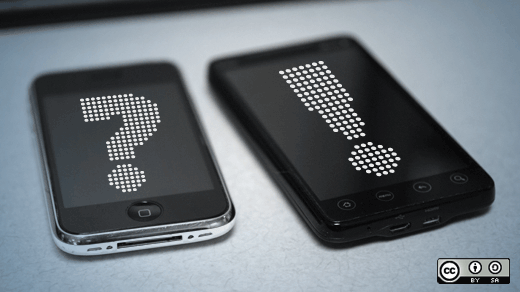All right, I get it. The iPhone is certainly a leader in both terms of sales and product ingenuity. I have often been known to blast Apple for being late to a party, then claiming they are introducing some incredible new feature (see Spaces vs Virtual Desktops). I won't hide the fact that I am not a fan of Apple. Even so, the iPhone is truly something innovative. That is, it was the first to find a way to take the smartphone out of the hands of businessmen (and women) and place it in the hands of text-heavy teens and wired-in grandmas. I'm not here to argue that the iPhone shouldn't be dominant, and I'm not even here to say that most people shouldn't be happy with the functionality of their iPhone. Bottom line, it's a nice device.
However, after reviewing our "Why do you still have an iPhone" poll, I was really bothered by something I saw. While the overwhelming majority stated they have never owned one, 15% (as of June 21st) stated that they "love it." Normally on a site like Engadget or Gizmodo, I wouldn't be surprised if that number was much higher. But this is a site whose namesake and goal come from a movement that most users and followers agree is more than just a nice coding philosophy--it's something that has become a way of life. That's right, 15% of opensource.com readers say they have no reason to switch from arguably the most closed smartphone on the market.
Two or three years ago, it would be fully understandable. The crop of open source based phones was meager at best, and they hardly had anything near the featureset of the first iPhone. And despite the efforts of OSDC to reach outside of the techy world, it's well known that open source fans are generally very savvy with gadgets due to their technical backgrounds. So when the iPhone hit, the geeky wow-factor surely gave a compelling reason to have the device in your pocket--there simply wasn't another player in town. (And before too many comments come in regarding this statement, I was actually one of the first adopters of the Neo Freerunner. I ordered it on the first day of availability. It just wasn't ready.)
This situation has definitely changed. Not only are there two mainstream, Linux-based operating systems for smartphones in WebOS by Palm and Android by Google, there are multiple phones running one of the two for every major carrier--including AT&T.
So here's my argument: There is a more open device available on your favorite carrier right now. It is a device that does nearly everything your iPhone does (it can be argued that, due to the openness, you can do much more with Android and WebOS devices). With that in mind, as a fan of open source, how can you give your money to a company that actively prevents open source code from even being uploaded to their App Store? Why in the world do I know so many open source enthusiasts still lining up at each iPhone release? Why are those same people still preordering and pining for the next gadget from Cupertino? It's nothing short of mind-boggling.
To curb some of the ideas that I might be a misled open source sheep, I am under no delusions that Android and WebOS implementations on modern phones are 100% open source. I'm not simply an Android or WebOS fanboy. I am a fan of open source, and, given the current landscape, choosing a Linux-based device just makes sense given feature and function parity.
And that's my point. Surely the iPhone is the best phone for some people. However, we are a society that prefers choice because nothing is one-size-fits-all. There has to be a better phone for most than the iPhone. Sales are beginning to show this is true, as Android is quickly overtaking Apple. Yes, that has a lot to do with the proliferation of Android across 30+ mainstream devices and Apple having only one. Yet this goes to further my point: given the choice, you should go with the device that makes the most sense to you. As fans of open source, I cannot fathom how the iPhone can be an easy decision for you, the opensource.com reader.
So with that, I strongly urge you to really think about the statement you make when you drop $200+ on a device that is as closed as the iPhone. Voting with your wallet is one of the best ways to show support or disapproval for something. Maybe it's time to give some money to companies that let open source software live in the market, that allow alternatives to their proprietary software, and that don't have lock-in tactics. Barring business requirements, there is no real excuse to buying an iPhone if you are a fan of open source. Stop it.






118 Comments